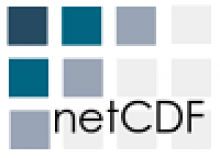TopoDrive is a two dimensional modeling software. This software, along with ParticleFlow, are meant to simulate two groundwater processes: topography-driven flow and transport of fluid particles. It helps the user to better understand and determine groundwater flow processes.
GIS
A geographic information system (GIS) is a system designed to capture, store, manipulate, analyze, manage, and present all types of spatial or geographical data. The acronym GIS is sometimes used for geographical information science or geospatial information studies to refer to the academic discipline or career of working with geographic information systems and is a large domain within the broader academic discipline of Geoinformatics.
TopoDrive
uDig
uDig is an open source desktop application framework software. The goal of uDig is to provide a Java solution for desktop GIS data access, editing, and viewing. uDig is distributed under the Eclipse Public License (EPL). It’s available for Microsoft, Mac, and Linux devices.
NetCDF
NetCDF (Network Common Data Form) is a set of software libraries and self-describing, machine-independent data formats that support the creation, access, and sharing of array-oriented scientific data. Data in NetCDF format is:
- Self-Describing. A netCDF file includes information about the data it contains.
- Portable. A netCDF file can be accessed by computers with different ways of storing integers, characters, and floating-point numbers.
- Scalable. Small subsets of large datasets in various formats may be accessed efficiently through netCDF interfaces, even from remote servers.
- Appendable. Data may be appended to a properly structured netCDF file without copying the dataset or redefining its structure.
- Sharable. One writer and multiple readers may simultaneously access the same netCDF file.
- Archivable. Access to all earlier forms of netCDF data will be supported by current and future versions of the software.
